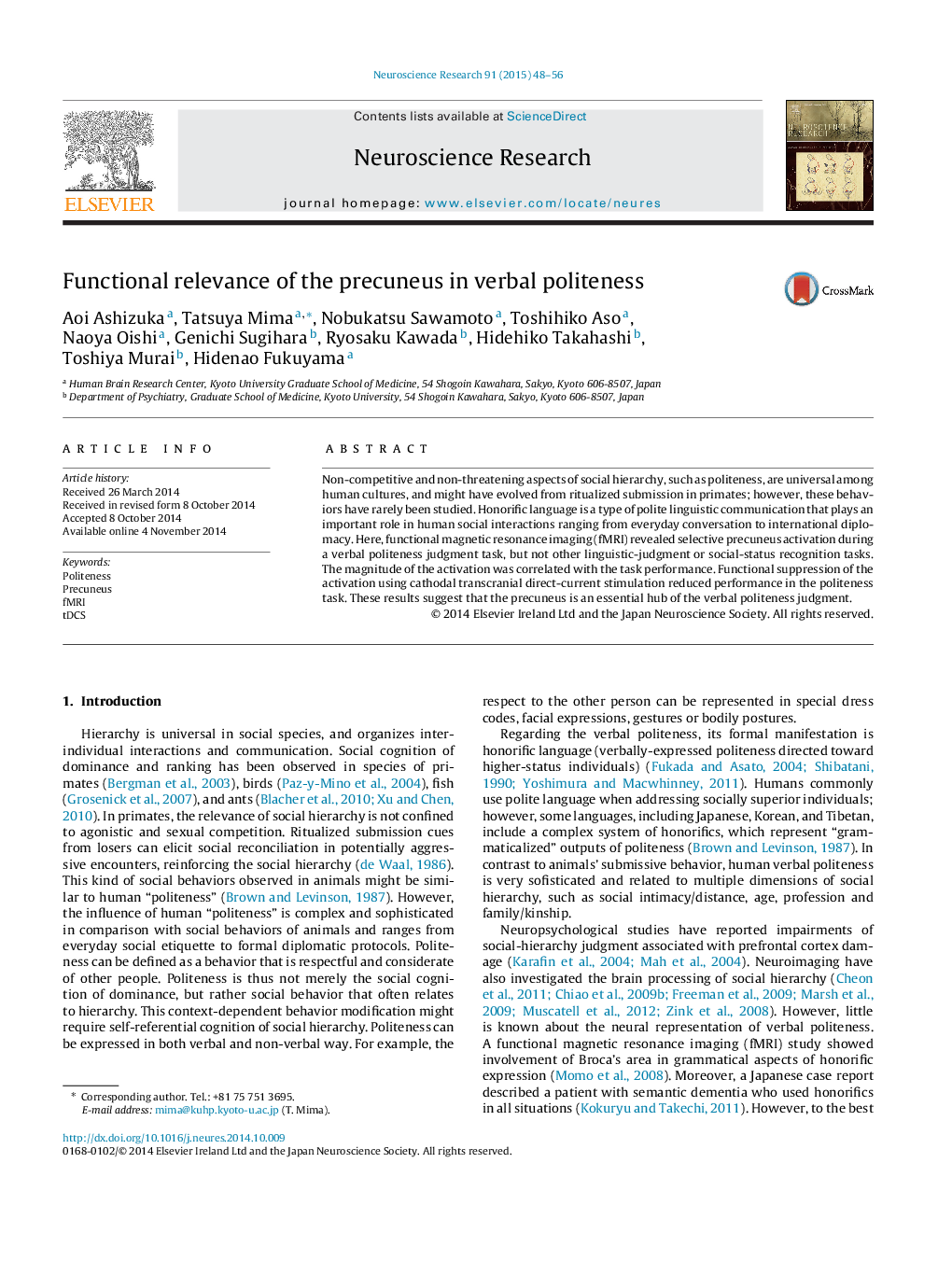| Article ID | Journal | Published Year | Pages | File Type |
|---|---|---|---|---|
| 4351375 | Neuroscience Research | 2015 | 9 Pages |
•We studied brain representation of politeness using a honorific expression task.•FMRI results revealed selective precuneus activation associated with politeness.•TDCS on precuneus produced politeness errors, suggesting the causal relationship.
Non-competitive and non-threatening aspects of social hierarchy, such as politeness, are universal among human cultures, and might have evolved from ritualized submission in primates; however, these behaviors have rarely been studied. Honorific language is a type of polite linguistic communication that plays an important role in human social interactions ranging from everyday conversation to international diplomacy. Here, functional magnetic resonance imaging (fMRI) revealed selective precuneus activation during a verbal politeness judgment task, but not other linguistic-judgment or social-status recognition tasks. The magnitude of the activation was correlated with the task performance. Functional suppression of the activation using cathodal transcranial direct-current stimulation reduced performance in the politeness task. These results suggest that the precuneus is an essential hub of the verbal politeness judgment.
